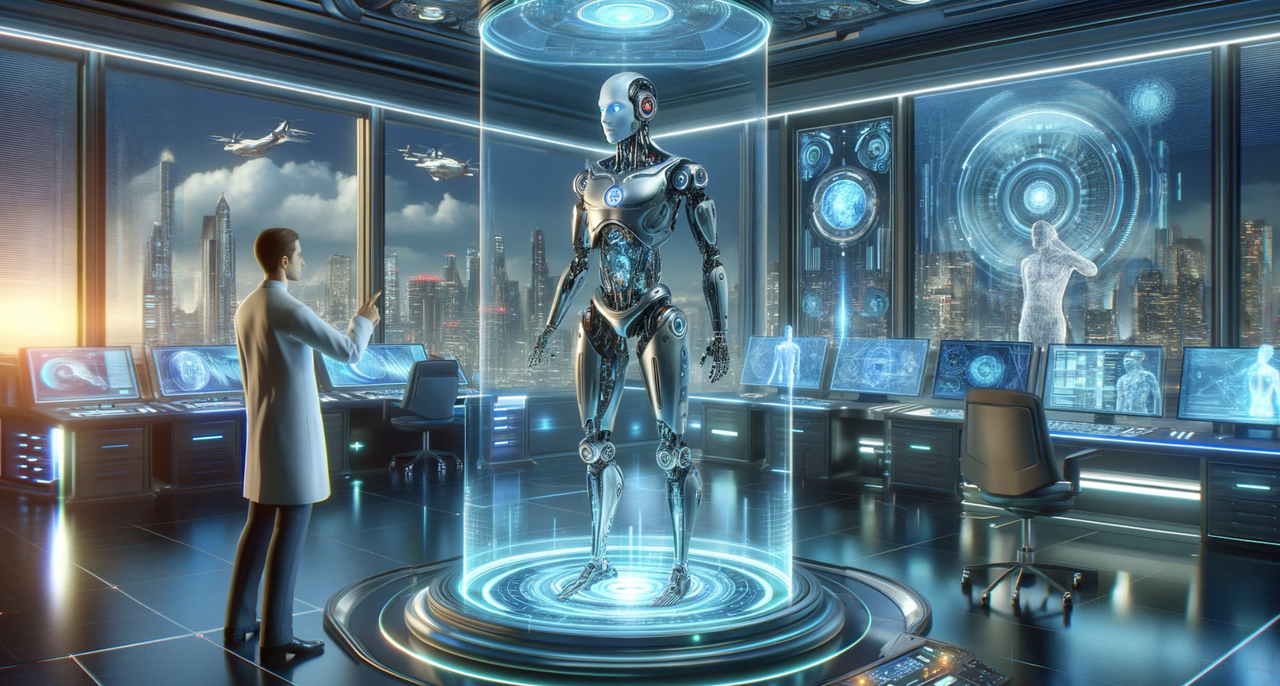Imagine engaging in a two-hour conversation with an AI interviewer a friendly, inquisitive voice asking about your childhood, pivotal memories, career choices, and even your stance on immigration policy. Soon after, a virtual replica of you emerges, capturing your values, preferences, and personality with striking accuracy.
This futuristic scenario is now a reality, according to a groundbreaking paper published on arXiv. Researchers from Stanford University and Google DeepMind, led by Joon Sung Park, a Stanford Ph.D. candidate, have unveiled a process that creates AI replicas of individuals.
How It Works: Testing the Accuracy of Virtual Replicas

The research team recruited 1,000 participants diverse in age, gender, race, education, and political ideology. After conducting interviews, they built AI models—dubbed “simulation agents”, designed to replicate the participants.
To measure their effectiveness, participants completed personality tests, social surveys, and logic games twice within a two-week period. The AI agents then underwent identical assessments. Remarkably, the AI agents demonstrated an 85% similarity to their human counterparts.
Park envisions a bold future, stating, “If you can have a bunch of small ‘yous’ running around and actually making the decisions that you would have made that, I think, is ultimately the future.”
Transforming Social Science Research
Simulation agents could revolutionize fields like social science, where studying real human subjects is often expensive, impractical, or ethically challenging. Researchers could use these AI personas to simulate interventions, such as combating misinformation on social media or analyzing traffic behavior.
John Horton, associate professor at MIT Sloan School of Management, highlighted the innovation’s potential. “This paper is showing how you can do a kind of hybrid: use real humans to generate personas which can then be used programmatically/in-simulation in ways you could not with real humans,” he explained.
A Parallel with Tool-Based AI Agents

Unlike tool-based agents, which perform tasks like scheduling appointments or retrieving data, simulation agents mimic human behavior and thought processes. However, advancements in simulation agents could also strengthen tool-based systems.
Horton noted, “Research on simulation agents, like the ones in this paper, is likely to lead to stronger AI agents overall.”
Navigating Ethical and Technical Challenges
While the technology holds promise, it raises ethical questions. The potential for misuse, such as creating deepfakes or unauthorized virtual personas, cannot be ignored. Additionally, the evaluation methods used like the General Social Survey and Big Five personality trait assessments capture broad traits but may miss nuances.
The simulation agents also struggled in behavioral tests, such as the “dictator game,” which evaluates fairness and decision-making. These limitations highlight the complexity of fully replicating human behavior.
A More Efficient Path to Digital Twins

The researchers attribute their success to in-depth interviews, which provide richer insights into individual personalities. Park reflected on the method’s efficiency: “Two hours can be very powerful,” he said, drawing from his own experiences with podcast interviews.
Hassaan Raza, CEO of Tavus, sees promise in the approach. “What was really cool here is that they show you might not need that much information,” he noted. His company plans to explore shorter interviews to create digital twins of users.
Looking Ahead: The Future of AI Simulation Agents
The advancements outlined in this paper pave the way for personalized AI models that reflect human individuality with greater fidelity. From reshaping academic research to practical applications in AI-driven tools, the implications of this innovation are profound.
Yet, as the line between human and machine blurs, society must address the ethical challenges that come with it. For now, AI’s ability to replicate personalities remains a testament to the rapid evolution of technology and a glimpse into the future of human-AI interaction.



